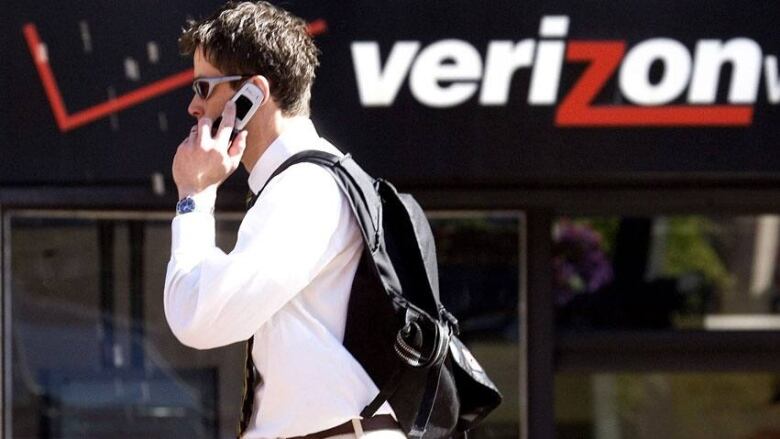Verizon challenges FCC's right to impose net neutrality
Big U.S. carrier trying to 'cable-ize' internet service, critics say

A court in Washington, D.C., is pondering a challenge by Verizon Communications Inc. over the "net neutrality" rules imposed by the Federal Communications Commission.
Verizon has questioned the FCCs right to regulate the internet, seeking tooverturn a 2010 orderthat internet service providers and mobile broadband providers could not block lawful websites.
The 2010 rule was enacted to ensure a "free and open internet" by blocking ISPs from giving preferred access to some websites who are willing to pay them more.
But Verizon argues that profitable internet businesses are taking up swaths of bandwidth and forcing it to build new infrastructure to handle the demand, without paying for the privilege. Verizon, the biggest U.S. carrier, would like to charge websites that carry popular content for moving that content to consumer devices, even though consumers and businesses already pay for internet access.
The company also argued that its First Amendment rights were being contravened because it was stripped of the power to choose what content would be carried on its network.
Change in net neutrality could make internet like cable
Susan Crawford, a tech policy expert and professor at Yeshiva University's Benjamin N. Cardozo School of Law, says any change in the net neutrality rules would change the business model of the internet. Speaking as an intervener in the case before the D.C. Circuit Court she said it would lead to a situation where ISPs would behave like the cable companies, bundling content and charging websites for access to the internet.
"Left to its own devices, it would like to be akin to a pay television provider, providing private carriage and cable-izing internet access," she wrote in her blog.
Powerful web companies such as Google and Vevo would likely survive in such a world, but there might be no guarantee of access for indie video artists or unknown startup companies.
"Verizons challenge to the FCCs open internet rule is historic. It is ... an attack on the idea that the government has any role in ensuring ubiquitous, open, world-class, interconnected, reasonably-priced internet access, either administratively (by virtue of authority delegated to the FCC by Congress) or through Congress itself," Crawford said.
Some analysts see the court case as a test of the U.S. governments ability to regulate the internet at all.
Should government regulate internet?
Dave Kaut, an analyst with Stifel Nicolaus & Co., says the FCC does not have explicit power over internet access and the judges may be swayed by that argument.
"It wouldnt be surprising if they push the FCC on the limits," he said. "I dont think theyre going to give the FCC carte blanche."
One of three judges on the panel, Judge David Tatel, authored a 2010 court opinion that stopped the FCC from prosecuting cable and internet provider Comcast Corp. overblocking bandwidth-hogging applications.
In arguments this week before the court, the FCC saidit has the responsibility to enact rules to speed up the development of a better telecommunication system because the infrastructure is vital to the U.S. economy. FCC supporters also argued that if Verizon can charge companies for better access on crowded networks, the company actually has an incentive to keep broadband capacity down.
Can 'open access' last forever?
But business analysts argue that a perpetual "open access" is unrealistic and ignores the property rights of ISPs.
OpenMarket.org blogger Wayne Crews says the FCC should scale back its control and let market forces dictate the cost of internet access.
"Legitimizing proprietary approaches to network access, strategies and pricing (and enjoying the infrastructure wealth creation that such property rights foster) is the crucial challenge for policymakers," he said.
It will be several weeks before the judges rule, but any decision could have far-reaching impact on internet rules in the U.S. and in Canada where ISPs would see to face the same regulatory environment.












_(720p).jpg)


 OFFICIAL HD MUSIC VIDEO.jpg)
.jpg)



























































































